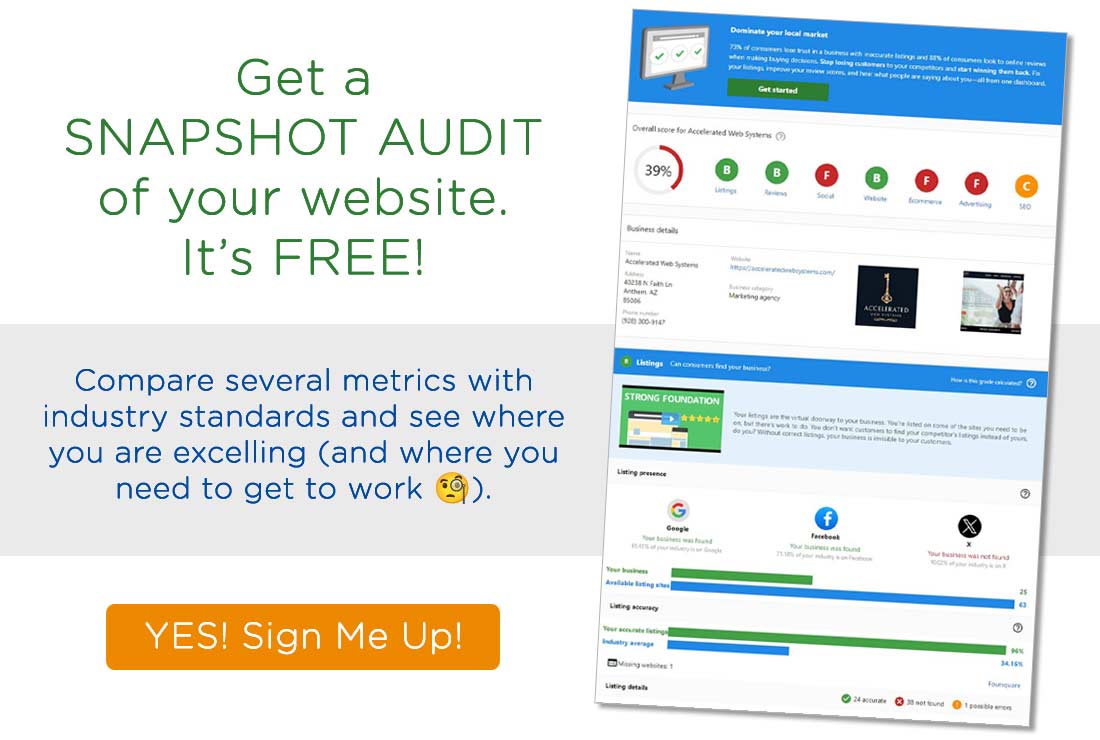Search Engine Optimization for Small Businesses
Need to get your small business noticed online?
This guide on search engine optimization for small businesses offers practical tips to attract local customers and boost web traffic.
Key Takeaways
- Prioritize local SEO strategies to connect with nearby customers and enhance your online visibility.
- Create high-quality, engaging content that incorporates relevant keywords to drive organic traffic and build credibility.
- Leverage essential SEO tools like Google Analytics and Google Search Console to monitor performance and make data-driven adjustments.
1. Understanding SEO for Small Businesses
SEO stands for search engine optimization. It involves enhancing your business’s visibility on search engines such as Google. For small businesses, SEO is a game-changer, helping you stand out in the crowded online marketplace and attract more potential customers. The primary goal of SEO is to drive high-quality organic traffic to your website by improving your rankings on search engine results pages (SERPs).
Local SEO, a subset of SEO, focuses on increasing visibility for businesses within specific geographic areas. This is particularly beneficial for small businesses, as it helps them connect with nearby customers who are searching for their products or services through local searches. Positive online reviews can also enhance your local search results, making it easier for potential customers to find and trust your business.
2. Benefits of SEO for Small Business Owners
Implementing SEO for small businesses offers a multitude of benefits. From increased online visibility to higher credibility and trust, the advantages are significant.
Enhanced Online Visibility
One of the most significant benefits of SEO is enhanced online visibility. Optimizing your website for search engines boosts your chances of appearing in search engine results pages (SERPs) for relevant keywords. Enhanced visibility allows small businesses to stand out among competitors and reach a broader audience.
SEO is a cost-effective alternative to paid advertising, providing long-term benefits without the recurring costs. Focusing on SEO strategies boosts engagement opportunities and attracts more traffic, leading to increased brand awareness and customer reach.
Increased Organic Traffic
SEO drives organic traffic to your website, which every business needs since 68% of online experiences start with a search engine. Unlike paid advertising, SEO attracts high-quality traffic without the need for ongoing expenses.
Increasing website traffic through SEO creates more opportunities to convert visitors into customers. High-quality traffic from SEO not only boosts sales but also reduces customer acquisition costs, making it a cost-efficient marketing strategy.
Building Credibility and Trust
High search engine rankings signal credibility and build trust among potential customers. People tend to trust organic search results more than paid advertisements, viewing them as more valuable and reliable. Consistently appearing at the top of search results helps establish your business as an authority in its field.
Customer reviews also play a crucial role in building credibility and trust. Positive reviews act as social proof, reinforcing the quality and reliability of your products or services. Encouraging and responding to reviews can significantly boost your business’s reputation and visibility.
3. Key Elements of an Effective Small Business SEO Strategy
An effective SEO strategy for small businesses involves several key elements, including keyword research, on-page optimization, and quality content creation. By focusing on these components, small businesses can enhance their online presence and drive more organic traffic to their websites.
Keyword Research
Keyword research is the foundation of any successful SEO strategy. It involves identifying relevant keywords and phrases that your potential customers are searching for. Small businesses should focus on mid-tail keywords that include their local area to improve search visibility.
Tools like Ahrefs, SEMRush, and AnswerThePublic can help you conduct thorough keyword research, providing insights into keyword performance and helping you tailor your content to your target audience. Incorporating these keywords into your content attracts more qualified traffic and enhances online visibility.
On-Page Optimization
On-page optimization involves optimizing various key elements of your website to improve its search engine rankings. Key on-page elements to focus on include page URLs, titles, headers, alt text, meta descriptions, and page content. Optimizing these elements ensures that your website is easily crawlable and indexable by search engines.
Each page should have a unique, compelling title that incorporates relevant keywords. Meta descriptions should be appealing and accurately reflect the page content to encourage clicks.
Quality Content Creation
Small businesses should focus on creating content for humans that clarifies what they do. Providing useful, engaging information about your products and services can help you rank for search terms and connect with potential customers.
4. Setting Up Essential SEO Tools
Setting up essential SEO tools like Google Analytics and Google Search Console helps track and measure your SEO performance. These tools provide valuable insights into your website’s traffic, user behavior, and search performance, helping you make informed adjustments to your SEO strategy.
Google Analytics
To start using Google Analytics, create a free account and set up a property for your website. Google Analytics provides data on traffic, user engagement, conversions, and user demographics, offering a comprehensive view of your website’s performance.
By categorizing your Google Analytics account based on specific business objectives, you can tailor the insights it provides to your needs. Using Google Analytics in conjunction with tools like Semrush’s Position Tracking can help you monitor keyword rankings and make data-driven adjustments to your SEO strategy.
Google Search Console
Google Search Console provides information on how your site appears in Google Search, allowing you to identify and fix issues that may affect your search performance. By connecting your website to Google Search Console, you can gain valuable insights into your search performance and discover potential optimization opportunities.
Google Search Console allows you to track your website’s performance (pages, keyword phrases, countries, devices) in search results and monitor important metrics like total clicks, click-through rates, impressions, and average position.
5. Optimizing Your Google Business Profile
Claiming and optimizing your Google Business Profile is essential for enhancing your business’s online presence. Adding photos, opening hours, and important business information like phone numbers and email addresses makes your profile more attractive and informative for potential customers.
A well-optimized Google Business Profile helps your business appear in search results and on Google Maps, increasing your chances of ranking well in a specific geographical area. This visibility can drive more traffic to your website and attract local customers who are searching for your products or services.
6. Local SEO Tactics for Small Businesses
Local SEO is particularly important for small businesses, as it helps them connect with nearby customers effectively. Implementing local SEO tactics, such as maintaining accurate NAP information, using local keywords, and encouraging online reviews, can significantly enhance your local search visibility and drive more traffic to your website.
Accurate NAP Information
NAP stands for Name, Address, Phone number, and is crucial for local business SEO. Ensuring that your NAP details are consistent across all online directories and social media platforms helps build trust with search engines and potential customers.
Regularly verifying and updating your NAP information is essential for maintaining local SEO effectiveness.
Local Keywords
Utilizing local keywords in your content is essential for connecting with nearby customers searching for specific services. Incorporating local keywords into your website content improves search visibility and attracts more local traffic.
Creating localized content tailored to your target audience can also enhance customer engagement and drive more traffic to your site.
Online Reviews
Online reviews play a significant role in local SEO, as they act as social proof and influence potential customers’ trust in your business. Encouraging customers to leave reviews and responding to them promptly can boost your business’s reputation and visibility in local search results.
High search engine rankings, combined with positive reviews, can establish your brand as an authority in its field and attract more customers.
7. Link Building Strategies
Link building is a critical component of SEO, as backlinks serve as votes of confidence for Google, indicating that your content is credible and valuable. Acquiring high-quality backlinks can boost your search engine rankings and drive more organic traffic to your website.
Small businesses can build links by reaching out to suppliers and associations for backlinks, submitting their business to relevant directories, and engaging with local websites and media outlets. These strategies can enhance your site’s findability and signal your reputation to search engines, ultimately boosting your SEO performance.
8. Monitoring and Measuring SEO Success
Monitoring and measuring the success of your SEO efforts is recommended for making informed adjustments and improving your strategy.
Tracking Keyword Rankings
Tracking keyword rankings is essential for understanding the effectiveness of your SEO efforts. Using Position Tracking tools, you can monitor your ranking data over time and make necessary adjustments to your SEO strategies.
Analyzing Website Traffic
Analyzing website traffic is critical for understanding how users engage with your site and identifying areas that require improvement. Setting up Google Analytics allows you to track website traffic and user behavior effectively, providing valuable insights into your site’s performance.
By regularly monitoring SEO success metrics, such as keyword rankings and website traffic, small business owners can make data-driven adjustments to improve their site and enhance user experience.
9. Common SEO Mistakes to Avoid
Avoiding common SEO mistakes is essential for ensuring your SEO efforts are effective and yield the desired results. Engaging with customer reviews can improve your business’s reputation and search rankings.
Neglecting internal link-building and improperly optimizing images can negatively affect your website’s SEO performance. Additionally, focusing solely on traffic without considering conversion can lead to ineffective SEO efforts.
Optimizing meta tags properly is also crucial for improving click-through rates and search engine rankings.
10. Leveraging Mobile Optimization
With over half of global internet traffic coming from mobile devices, mobile optimization is crucial for attracting visitors and ensuring a seamless user experience. Google prioritizes mobile performance in its search rankings, making it essential for small businesses to have a mobile-friendly site. A mobile-optimized site enhances user experience by making navigation easier on smaller screens, leading to higher user satisfaction and longer engagement.
Implementing mobile SEO can also decrease bounce rates by ensuring users can easily navigate and find information on your site. A well-optimized mobile site loads quickly, ideally within 2-3 seconds, reducing the risk of users leaving due to slow load times. Focusing on mobile optimization improves search engine rankings and attracts more organic traffic for small businesses.
In Summary
Implementing effective SEO strategies can significantly enhance the online presence of small businesses. By understanding the basics of SEO, leveraging local SEO tactics, optimizing on-page elements, creating high-quality content, and utilizing essential SEO tools, small businesses can drive more organic traffic, build credibility, and ultimately increase sales. By avoiding common SEO mistakes and focusing on mobile optimization, you can ensure your SEO efforts are effective and yield long-term benefits. Start implementing these tips today and watch your small business grow!
Frequently Asked Questions
What is SEO and why is it important for small businesses?
SEO is essential for small businesses as it enhances your website’s visibility, attracts organic traffic, and builds credibility, all of which can significantly boost your sales and revenue. Embrace SEO to empower your business and reach new heights!
How can I improve my small business’s online visibility?
To boost your small business’s online visibility, focus on optimizing your website with effective SEO strategies, including keyword research and high-quality content creation. Embrace local SEO tactics to connect with your community and grow your reach!
What are some essential SEO tools for small businesses?
To enhance your small business’s online presence, prioritize Google Analytics and Google Search Console. These essential tools will empower you to track performance and optimize your SEO strategy effectively!
Why is mobile optimization important for SEO?
Mobile optimization is essential for SEO as it significantly boosts your search rankings and attracts more visitors, given that over half of global internet traffic comes from mobile devices. Embrace this opportunity to enhance your site’s visibility and engage a broader audience!
What common SEO mistakes should small businesses avoid?
To boost your small business’s online presence, avoid mistakes like neglecting internal links, improperly optimizing images, and overlooking meta tags. Focus on creating a comprehensive SEO strategy that enhances both traffic and conversions for lasting results!
Explore our Custom SEO Services ⇒
Why choose Accelerated Web Systems for SEO?
✔️ We believe in nuance, alignment, and consistent, relentless work. You are not just a number with us.
✔️ We dive deep into your unique business proposition, your ideal client persona, and your revenue goals.
✔️ We evaluate your current situation in the search engines from many angles to establish a benchmark before we start. Keywords, competition, reviews, Google properties, website speed, and website conversion rates all play a part in a successful SEO campaign.
✔️ We research, strategize, plan, and execute for short and long-term success.
✔️ You can count on our SEO services being comprehensive, clever, creative, and competitive.
✔️ We have been doing SEO for over 18 years and web design for over 20. We know what it takes to rank!



